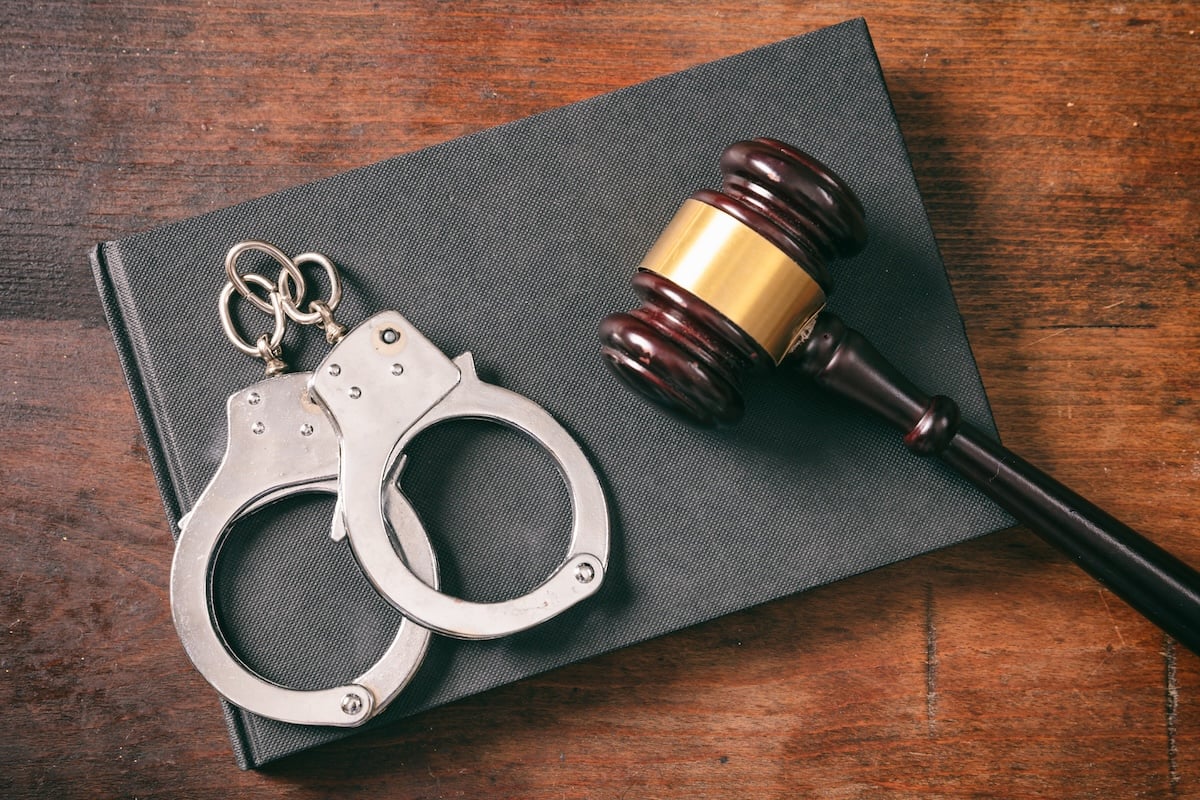Understanding the difference between misdemeanor vs felony charges in Minnesota is essential if you or someone you know is facing criminal allegations. These classifications carry vastly different consequences, both legally and personally, and knowing what sets them apart can help you make informed decisions at every step of your case.
In this guide, we’ll explain:
- The legal definitions and penalties for misdemeanors and felonies in Minnesota
- Common types of offenses in each category
- How a charge can impact your future and what to do next
Whether you’re navigating the justice system for the first time or seeking clarity after an arrest, this overview will help you understand what’s at stake—and how to protect your rights.
What’s The Difference Between Misdemeanors And Felonies?
In Minnesota, criminal charges are divided into three main categories: misdemeanor, gross misdemeanor, and felony. Each level is defined by statute based on the severity of the offense and the maximum penalty allowed.
Misdemeanors In Minnesota
A misdemeanor is considered the least serious criminal offense in the state. These charges are still criminal, not civil, and a conviction results in a permanent criminal record.
Maximum penalties for a misdemeanor:
- Jail time: Up to 90 days
- Fine: Up to $1,000
- Probation: May include conditions like community service, treatment, or classes

Examples of misdemeanors in MN include:
- First-time DWI (under certain circumstances)
- Disorderly conduct
- Theft of property valued under $100
- Driving without a valid license
- Minor drug possession (non-repeat offenses, small quantity)
Gross Misdemeanors In Minnesota
This middle-tier category falls between a misdemeanor and a felony. Though more serious than a misdemeanor, a gross misdemeanor is still not considered a felony under Minnesota law.
Maximum penalties for a gross misdemeanor:
- Jail time: Up to 1 year
- Fine: Up to $3,000
- Probation: May be longer and more restrictive than for simple misdemeanors
Examples of gross misdemeanors include:
- Second DWI offense within 10 years
- Theft between $500 and $1,000
- Assault with moderate injury
- Interfering with a 911 call
Felonies In Minnesota
Felony charges are the most serious classification and carry the most severe consequences. Felony convictions can result in prison time, long-term probation, loss of civil rights (including firearm ownership), and significant challenges in housing and employment.
Felony penalties vary widely depending on the crime, but typically include:
- Prison time: Over 1 year, potentially decades for serious offenses
- Fines: Often over $5,000
- Extended probation: With strict terms and regular court oversight
Examples of felony crimes in MN include:
- Murder or manslaughter
- Drug possession or trafficking (depending on amount and type)
- Sexual assault
- Burglary and arson
- Identity theft or financial fraud over $1,000
- Felony-level assault (e.g., using a weapon, causing serious injury)
Key Legal Differences Between Misdemeanor And Felony Charges
The distinction between misdemeanor vs felony offenses isn’t just about jail time—it also determines how your case proceeds, what rights are at risk, and the long-term effects on your life.

Court Process And Prosecution
Felony charges are prosecuted more aggressively, often by more experienced prosecutors. They may require grand jury review or preliminary hearings, while misdemeanor cases typically move through the system faster and with fewer procedural steps.
Sentencing And Collateral Consequences
A felony conviction carries additional consequences beyond incarceration. These may include:
- Loss of voting rights (restored after sentence completion in MN as of 2023)
- Ineligibility for certain jobs or professional licenses
- Restrictions on firearm possession
- Permanent criminal record that may not be eligible for expungement for years
In contrast, some misdemeanor and gross misdemeanor offenses may be eligible for diversion or expungement sooner, especially for first-time offenders.
Impact On Immigration Status
For non-citizens, a felony conviction—and in some cases even a gross misdemeanor—can have severe immigration consequences, including deportation or inadmissibility.
Repeat Offenses And Sentence Enhancements
Repeat misdemeanor charges can be enhanced to gross misdemeanors or felonies. For example, a third DWI in 10 years is charged as a felony in Minnesota. Similarly, repeat theft offenses may escalate with each conviction.
Can Charges Be Reduced Or Dismissed?
In some cases, felony charges may be reduced to misdemeanors through negotiation, plea agreements, or legal defenses that raise doubt about the prosecution’s case. This can significantly change the outcome of a criminal case, especially for first-time defendants.
Common defense strategies include:
- Lack of evidence: Challenging whether the prosecution has enough admissible proof
- Unlawful search or seizure: Violations of Fourth Amendment rights
- Mistaken identity or false accusation
- Plea bargaining: Reducing a felony to a gross misdemeanor or misdemeanor in exchange for a guilty plea
Your defense attorney can evaluate the facts and determine whether a lesser charge or dismissal is possible under Minnesota law.
FAQs About Criminal Charges In Minnesota
Are Felonies Ever Expunged In Minnesota?
Some felonies are eligible for expungement in Minnesota under limited circumstances. Eligibility depends on the type of crime, the time since the conviction, and whether all terms of sentencing have been completed. The waiting period is typically 5 years or more.
What Is A Stay Of Adjudication?
In misdemeanor and gross misdemeanor cases, Minnesota courts may offer a stay of adjudication. This means the defendant pleads guilty, but the court does not enter a conviction. If the person completes probation successfully, the case is dismissed.
Can A Misdemeanor Be Removed From My Record?
Certain misdemeanor charges may be expunged after the sentence is completed and a waiting period has passed—typically 2 years for most offenses, assuming there are no new charges during that time.
Will A Felony Prevent Me From Owning A Firearm?
Yes. In Minnesota, most felony convictions result in the loss of firearm rights. In some cases, these rights can be restored through a court petition after the sentence is completed, but the process is complex and not guaranteed.
Why Legal Representation Matters
Facing any criminal charge—whether misdemeanor, gross misdemeanor, or felony—is a serious matter. The way your case is handled can affect your freedom, future, and reputation. Attempting to navigate the system without an experienced defense attorney puts you at risk of unfair outcomes.
- Minnesota criminal law is complex: Sentencing guidelines, plea options, and diversion programs all depend on accurate legal interpretation.
- Prosecutors are not on your side: Their job is to convict, not to advise or help you.
- Every detail matters: One missed deadline or misstep could result in harsher penalties or lost opportunities.

Work With A Criminal Defense Attorney You Can Trust
At The Law Offices of Josh Johnson, we defend clients across Minnesota against all types of criminal charges—from first-time misdemeanors to serious felonies. We understand the high stakes and the stress that comes with criminal accusations, and we approach every case with strategy, experience, and attention to detail.
Reach Out For A Free Consultation
If you’re facing criminal charges in Minnesota, don’t wait. Reach out to The Law Offices of Josh Johnson today for a free consultation. We’ll review your case, answer your questions, and give you the tools to move forward with confidence.

